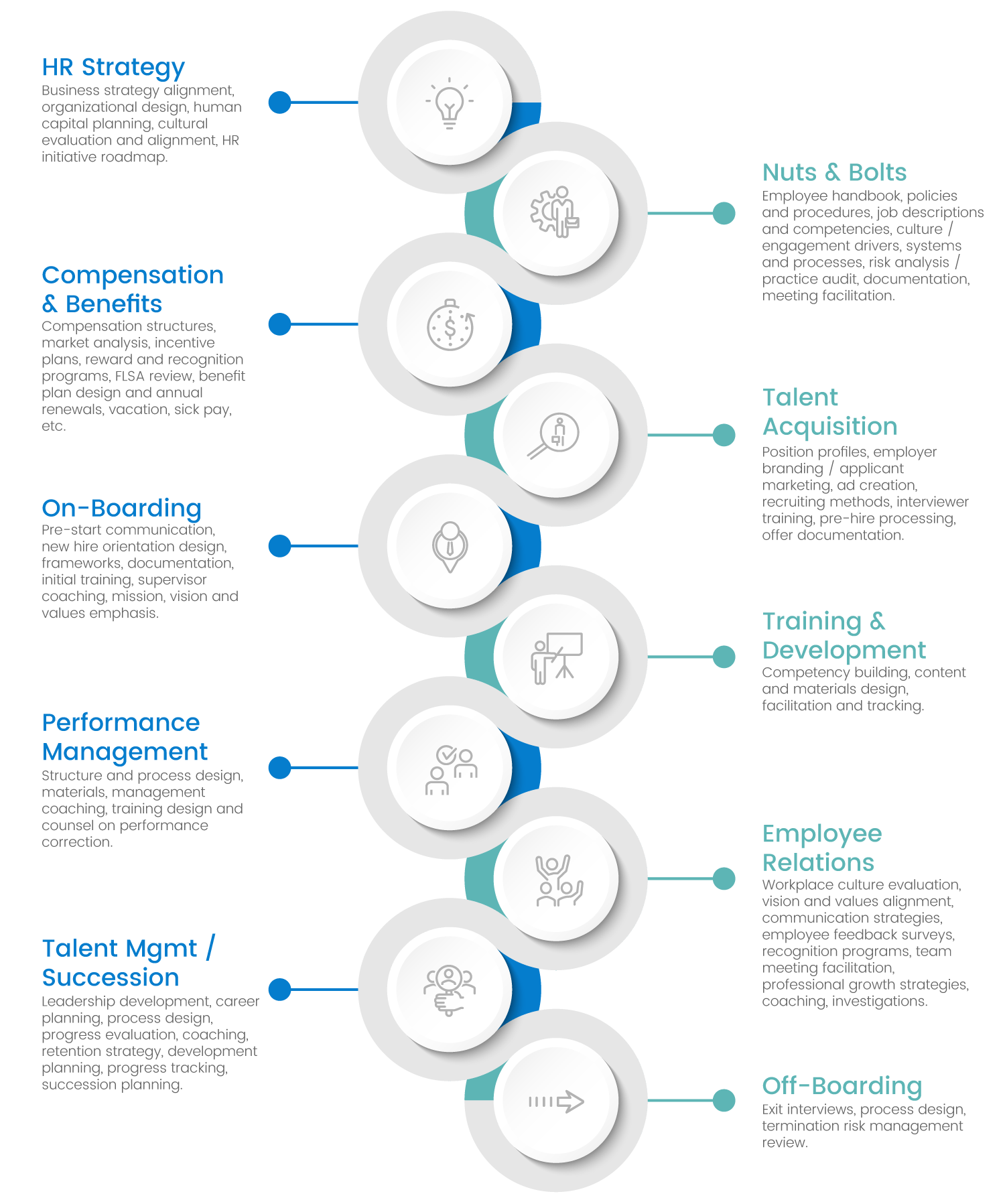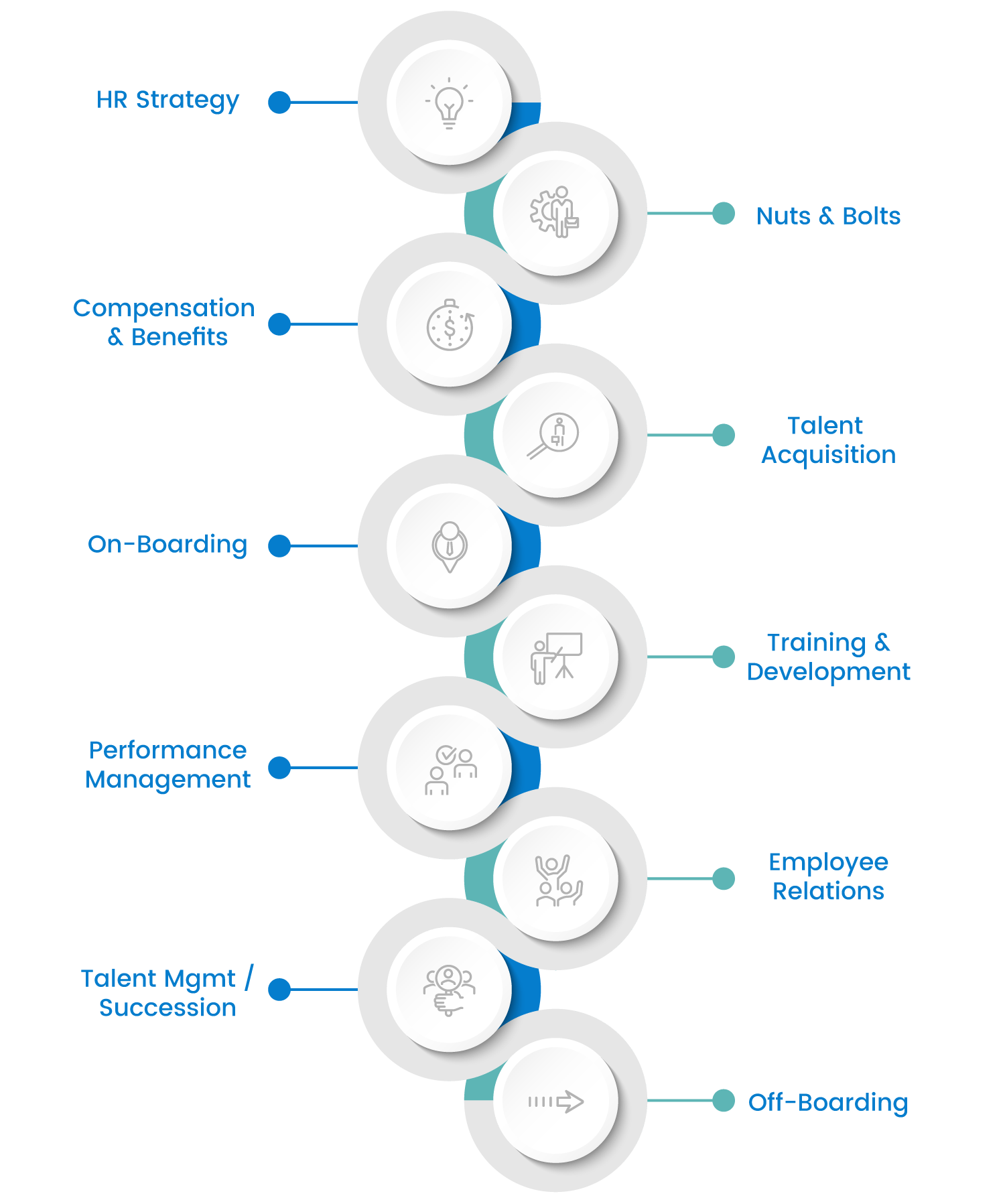HR Consulting in Houston: HR Services That Work
Are your HR strategies fueling a culture that drives real business growth — or just managing the status quo? The truth is, tactics can only take you so far. Sustainable growth and profitability come from a high-performance culture where people know what winning looks like and feel empowered to make it happen.
But a high-performance organizational culture doesn’t happen by accident. It’s built through effective leadership, strategic HR practices, and a commitment to open communication. At HR Strategies Now, we help organizations turn culture into a competitive advantage that powers engagement, accountability, and results.
The right HR strategies and practices will build the culture that you're after, improving your ability to attract, engage, motivate and retain the top talent you need to grow. This is HR consulting done right. This is HR Strategies Now.
The Full HR Life Cycle Approach
Have you ever wondered how your company is going to attract, engage and retain the highest performing employees? For many business leaders, that’s one of their greatest challenges. That's why it's important to focus on the full HR life cycle.
We deliver HR consulting for small and mid-sized businesses seeking to build a high performance leadership team and a results-driven culture. Our work helps you attract, engage, motivate, and retain top talent, reduce turnover, and strengthen your workplace culture. Whether you need performance management training, talent acquisition services, or leadership development, we partner with you across the full HR life cycle to build systems that scale your business.
How Do You Know if HR Strategies Now is Right for You?
- Do you want an organizational culture focused on growth?
- Are you looking for a skilled partner in your HR journey rather than a slick web platform?
- Do you need real world guidance on the full HR life cycle - or a part of it?
- Are you looking for more depth on HR practices that can really help your business grow?
- Do you place a high value on trust-focused business relationships?
- Do you believe there is significant work that needs to be done but don’t have the budget for a full time HR Manager?
- Are you looking for greater alignment and cohesion within your team?
If you said yes to any of these, let’s get started! Contact HR Strategies Now for expert HR consulting in Houston.








